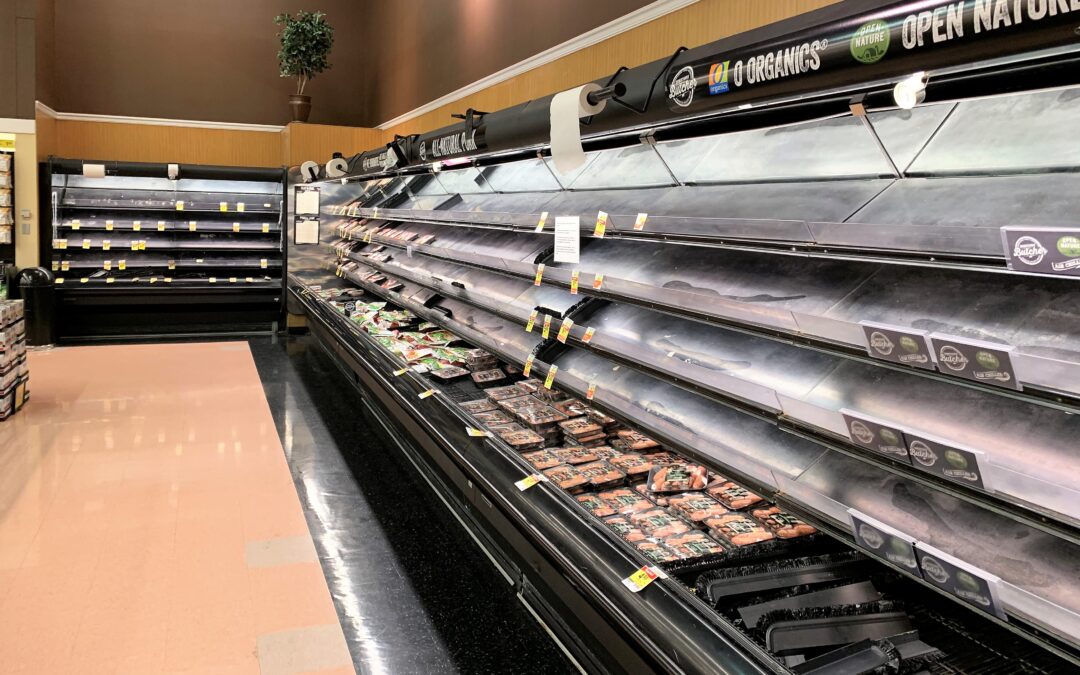Wendy’s restaurant has taken burgers off the menu in some locations and grocery stores Costco and Kroger have announced limited stocks of beef as Americans start to feel the impact of the pandemic-triggered meat shortage.
It’s a shocking decision for Wendy’s, which established itself as the first fast-food chain to offer fresh ‘never frozen’ beef, and it’s an eerie foreshadowing for what’s to come at restaurants across the country.
Outbreaks of the virus at meat packing plants across the country have led slaughterhouses to shutter, farms to kill off animals they can no longer feed, store shelves to empty, and now restaurants to alter their menus.
Costco said today it had limited the number of beef, pork and poultry products customers can buy.
Grocery stores are preparing for massive shortages of meat supplies following coronavirus induced supply disruptions.
Some of the biggest slaughterhouses in the United States have closed over the last few weeks as COVID-19 spread widely through meat processing facilities.
That has cut beef slaughter capacity 10 percent and pork slaughter capacity by 25 percent.
Costco said it would temporarily limit fresh beef, pork and poultry purchases to a total of three items per Costco member, following Kroger Co, which has put purchase limits on ground beef and fresh pork at some of its stores.
Costco also requires all shoppers to wear masks or face coverings to reduce the chances of transmission of the virus.
And, with experts warning the food supply chain is breaking, data shows as many as one out of every four Americans are projected to join the ranks of the hungry.
Before the pandemic, food policy experts say, roughly one out of every eight or nine people across the nation struggled to stay fed.
John Tyson, chairman of the United States’ largest meat processing company Tyson Foods Inc said last week the food supply chain was ‘breaking’ and millions of pounds of meat would vanish from grocery stores in the country.
President Trump has ordered meat processing plants to stay open to protect food supplies, a move that drew backlash from unions that said at-risk workers needed more protection.
The United Food and Commercial Workers International Union, which represents 1.3 million food and retail workers, said earlier this week that 20 food-processing and meatpacking union workers in the US have died of the virus.
An estimated 6,500 are sick or have been exposed while working near someone who tested positive, the union said.
One Tyson employee, a Texas woman in her 30s, wrote that Trump was sacrificing lives for profit.
‘He says we’re part of critical infrastructure, that we’re essential workers. Well, I don’t feel critical. I don’t feel essential. I feel sacrificial,’ she wrote.
‘This is about money. This is what they’re always telling us: If the production chain stops for a minute, the company loses $700,000.
‘This is about how if Tyson had to close to handle the virus, they would have to pay us while we stayed home.
‘It’s not about the food supply chain.
‘We have enough meat in America to last us a couple weeks, or a month. People could also just not eat bacon burgers for a little bit. Tyson could clean out the plant and make sure the workers were healthy. This is about money.’
‘I’m not naïve, but it’s hard to accept that to Tyson corporate, we are completely replaceable. If I died today, there’d be somebody in my job tomorrow. To my loved ones, I am not replaceable.’
McDonald’s Canada said in a statement it will start sourcing beef from outside the country to make ends meet due to meat shortages.
Kroger supermarkets posted an alert on its website saying there is limited inventory ‘due to high demand’.
